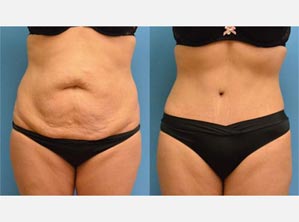
Laser skin resurfacing is a personalized and very precise treatment that gets rid of any signs of aging or pigmentation that may make you dissatisfied with your appearance. There’s a lot to consider when first diving into the world of laser skin resurfacing – what exactly is it and what does it feel like? We’re here to tell you the four things you should know before getting this procedure done.
First, the Basics
Laser skin resurfacing with SharpLight™ at David J. Levens M.D., Plastic Surgery uses cutting edge dynamic pulse control, radiofrequency (RF), infrared and laser technologies to resurface the skin. This means taking off the outer-most layer of the skin to achieve your desired results. People often get laser skin resurfacing, or an IPL Photofacial with SharpLight™, to regenerate collagen to tighten the skin, remove pigmentation, reduce fine lines and wrinkles, and treat acne.
1. When to Get it Done
Fall is considered “laser season” because the sun is out less often. Once you get your skin resurfaced using lasers, your skin is hypersensitive to any sun exposure for up to a year. Many plastic surgeons recommend undergoing treatment during the fall and winter months because daylight hours are shorter, and you’re likely spending more time indoors. No matter the time of year, make sure you’re using sunscreen (SPF 30 or higher) daily to protect your skin against sun damage, brown spots, fine lines and wrinkles.
2. Does it Hurt?
It’s often heard that getting a laser treatment done feels like a rubber band being snapped against the skin over and over again. However, the discomfort you feel during laser skin resurfacing really depends on the laser. At David J. Levens M.D., Plastic Surgery, we use SharpLight™ laser technology. This type of laser is low on pain and high on results. This means you’re going to get a more youthful appearance and more well-toned skin with a fraction of the discomfort.
3. Watch Your Medication
You always want to be honest with your provider about procedures you’ve had done in the past and the medications you are taking. Some of the medications you are taking may affect how your skin reacts to the laser resurfacing treatment. For example, if you’re prone to breakouts or are taking Accutane, you may have a harder time healing from the procedure than someone with healthier, less problematic skin.
4. One Treatment Probably Won’t Cut It
There are some cases in which one treatment will take care of light pigmentation or treat minimal acne, but when planning your laser skin resurfacing, plan to have more than one session. It may take a series of treatments to achieve your desired results from hyperpigmentation, moderate to severe acne, and fine lines and wrinkles. Don’t get discouraged and remember to take time between your treatments.
If you are interested in learning more about laser skin resurfacing, contact us to schedule your consultation today.

